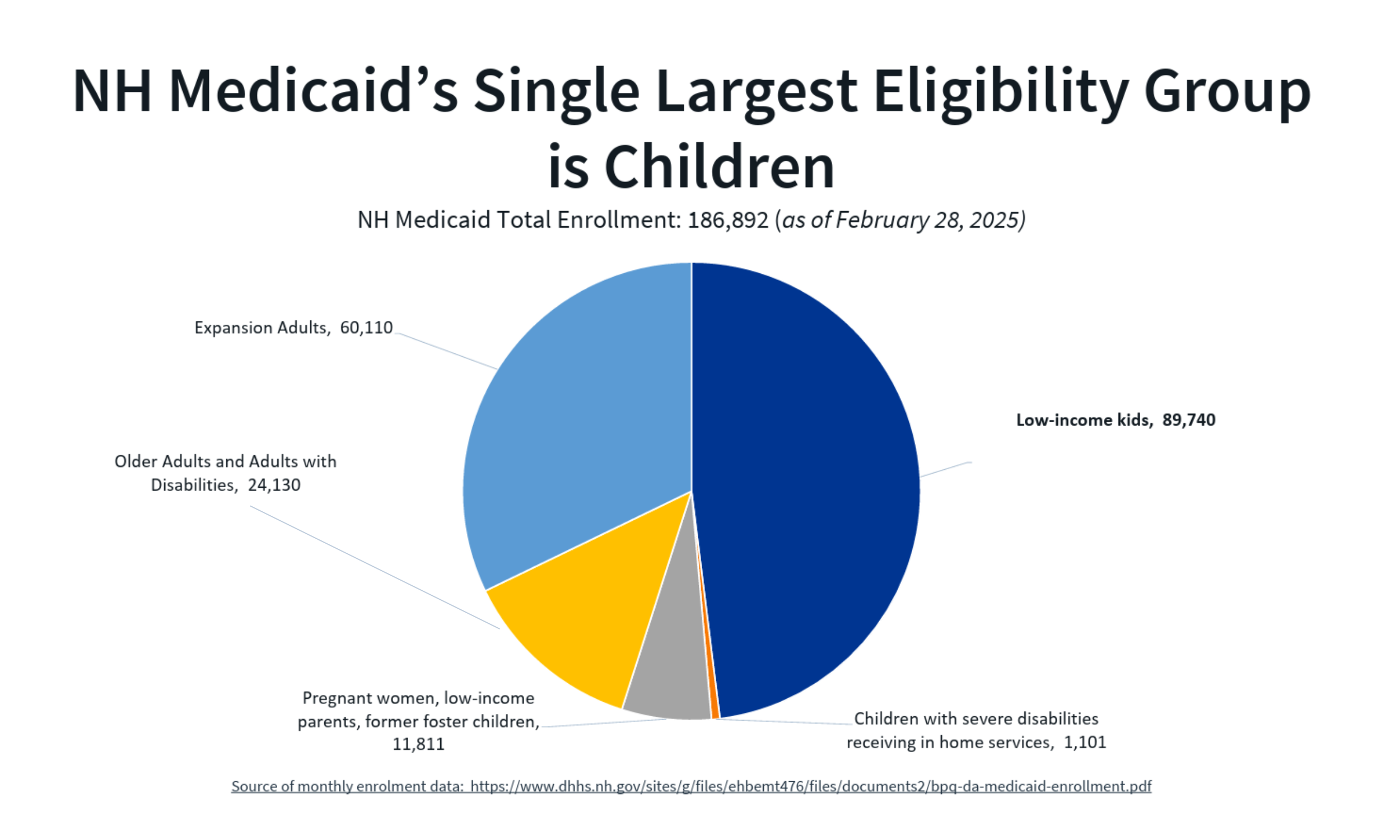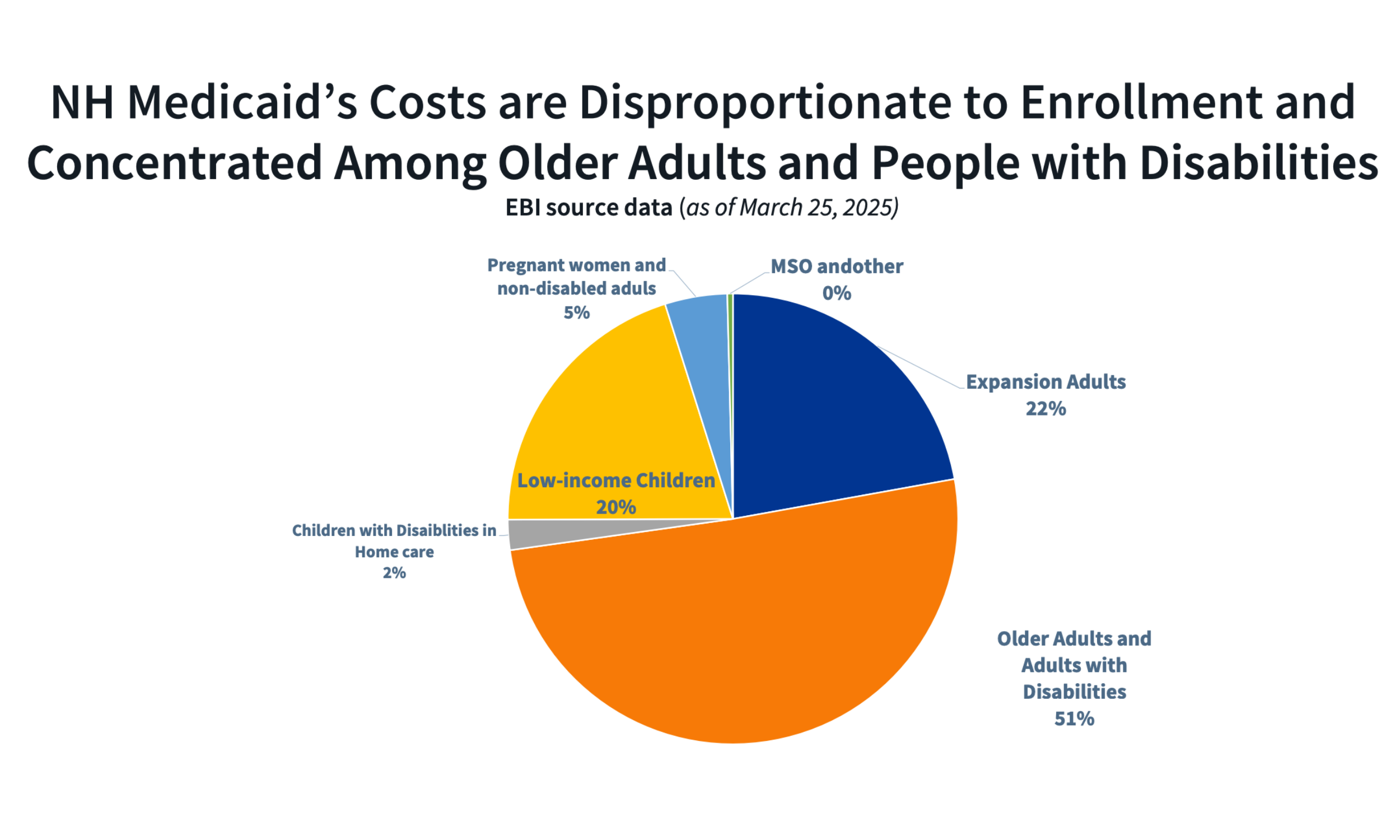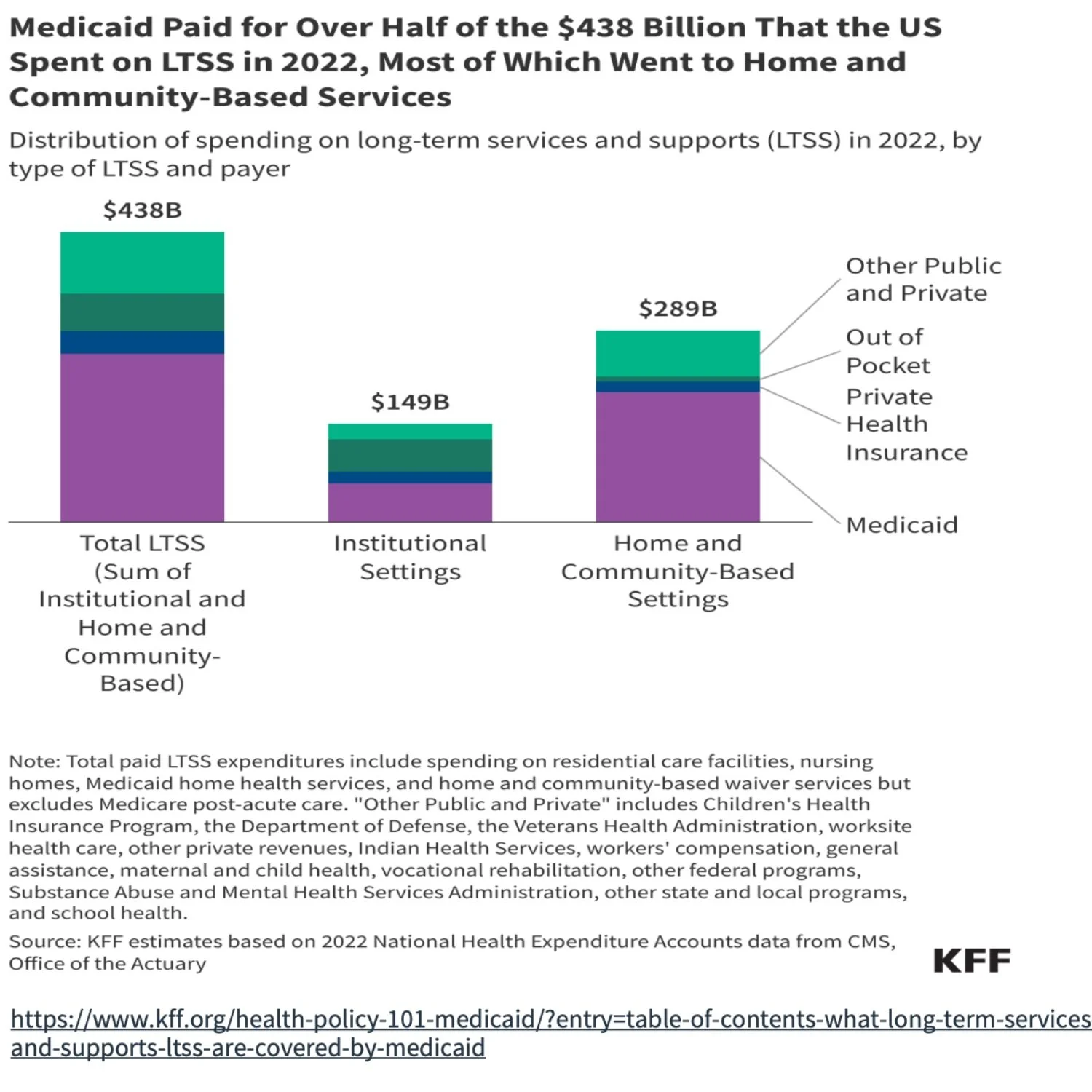Why Medicaid Matters for New Hampshire
Proposed federal changes to Medicaid could result in over $400 million less for the program in New Hampshire, according to a New Hampshire Fiscal Policy Institute (NHFPI) report. This gap in funding would place enormous pressure on the state budget for Medicaid and create significant barriers for thousands of residents to access the health care they need. At both the state and federal levels, new budget proposals threaten to change who qualifies for Medicaid and which services the program can cover. This blog post explores what those changes could mean for Granite Staters and why protecting Medicaid matters now more than ever.
Why is Medicaid Important?
Health insurance coverage is a critical part of being able to get health care services. People without insurance are more likely to delay or skip seeking essential medical care for fear of getting medical bills that they cannot afford. As summarized by the Kaiser Family Foundation, “Nearly half (49%) of uninsured adults say they have difficulty affording health care costs, more than double the share of those with private insurance (21%). These costs can quickly translate into medical debt since most people who are uninsured have low or moderate incomes and have little, if any, savings. More than six in ten (62%) uninsured adults report having health care debt compared to over four in ten (44%) insured adults.”
A recent webinar, “Medicaid Matters: Defending Health Care Access in NH,” provided details about NH Medicaid and the risks new budget proposals pose to it. Medicaid Matters, a broad coalition, has been collecting stories about the importance of Medicaid in helping Granite Staters stay healthy, stable, and secure. This includes individuals and families who have relied on Medicaid coverage due to their complicated care needs from congenital defects, disability, and lack of health insurance offered at their jobs.
Who Relies on Medicaid in NH?
With Medicaid providing health care coverage for approximately 187,000 people in New Hampshire, roughly 13% of the population, the stakes are high. People covered by the program include infants and children, pregnant women, people with disabilities, veterans, and older adults in nursing homes. Budget proposals at the state and federal levels could cause significant changes to who is eligible for Medicaid coverage, and which services are covered, leaving thousands vulnerable.
The largest eligibility group of people in NH Medicaid is children, with over 90,000 kids receiving Medicaid coverage; that is about 1 in 4 New Hampshire children. Additionally, almost 25,000 people receive NH Medicaid because they are low-income older adults and/or have a disability that qualifies them for coverage. And more than 60,000 adults receive NH Medicaid through the “Granite Advantage” program, which expands eligibility to people earning up to 138% of the federal poverty level (about $21,597 as an annual income for a single adult or $44,367 for a family of four).
Medicaid is an important resource for everyone in New Hampshire, with the coverage rate ranging from 9%-21% across the state. Medicaid plays a crucial role in rural NH counties like Coös, where about 1 in 5 residents are covered.
How Are Medicaid Dollars Spent?
Medicaid plays a critical role in supporting people with ongoing, complex care needs, and program costs tend to be concentrated among those enrollees. Generally, older adults and/or adults with a disability tend to require specialized, daily services such as in-home aides, support with personal care services, and other assistance with routine daily activities that are known as long-term care services and supports (LTSS). These are services that most private insurance plans don’t cover, and they allow older adults and adults with disabilities to maintain their mobility and independence, and in many cases, provide families with an alternative to having a loved one live in an institutional setting.
Nationwide, Medicaid is a particularly important source of coverage for LTSS, which include nursing home and residential care. According to the Kaiser Family Foundation, Medicaid was the payer for more than half of LTSS services in the US in 2022. In New Hampshire, 5 out of 8 nursing home residents are covered by Medicaid.
In addition to being the primary payer for LTSS, Medicaid is also a significant source of coverage for low-income children, giving them coverage for the important childhood primary care services that all kids need for healthy development. The program also underwrites a substantial share of mental health and substance use treatment in the state. In State Fiscal Year 2024, New Hampshire Medicaid provided more than $100 million for substance use disorder services and $264 million for mental health services, making it a vital part of the state’s behavioral health system.
All of this shows that Medicaid isn’t just a health care program; it’s a lifeline for hundreds of thousands of Granite Staters and their families to get the care they need. Cuts to the program threaten not only individual well-being but the broader health of our communities. If you or someone you know has been helped by Medicaid, consider sharing your story at https://www.nhneedsmedicaid.com/story. Medicaid matters, and your voice does too.
About Jo Porter
Jo Porter
Chief Strategy Officer, NHCJE
Jo Porter, MPH, brings over 20 years of experience in public health, program development, and leadership and is the New Hampshire Center for Justice & Equity’s Chief Strategy Officer. She served as Director of the Institute for Health Policy and Practice at UNH for over seven years, guiding its growth. Nationally, Jo co-chaired the All-Payer Claims Database Council and chaired the State-University Partnership Learning Network. Passionate about data-informed decision-making, she’s held state and federal committee roles. Jo earned her MPH with honors from Boston University and graduated Summa Cum Laude from UNH. She currently serves on the NH Fiscal Policy Institute Board and the Leadership Team of the NH Food Alliance.
About Deborah Fournier
Deborah Fournier
Director of Health Law and Policy, UNH CHHS Institute for Health Policy and Practice
Deborah H. Fournier, JD, Director, Health Law and Policy. Deborah has twenty years of health policy experience, including posts at national organizations such as the Association of State and Territorial Health Officials (ASTHO) and the National Academy for State Health Policy (NASHP). Ms. Fournier has also served in two state Medicaid programs, culminating in her serving as NH’s Medicaid Director. Ms. Fournier’s career has encompassed health policy related to public health crises, healthcare financing, payment reform, health insurance coverage programs, social drivers of health, and innovative Medicaid policies. She is currently focused on healthcare affordability and emerging pathways for sustainably financing healthcare services and public health services.







